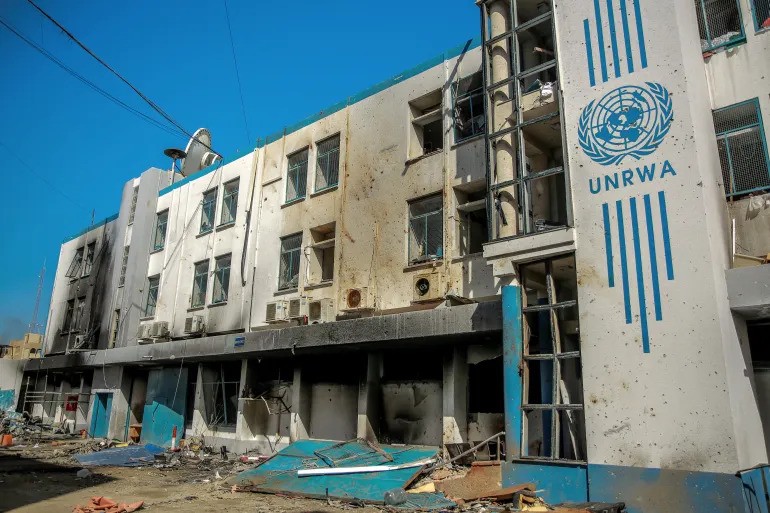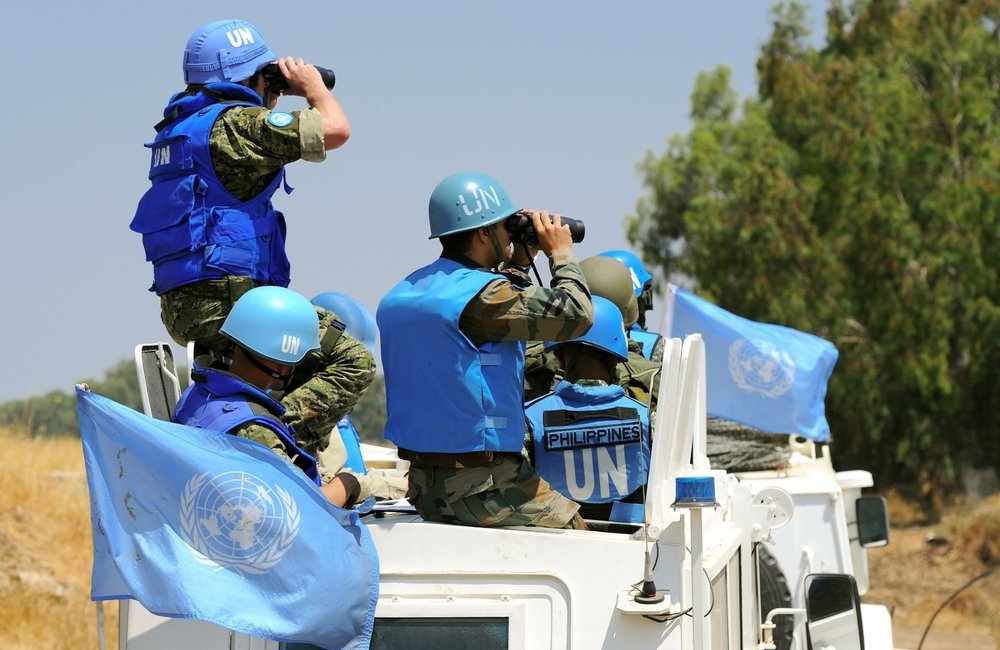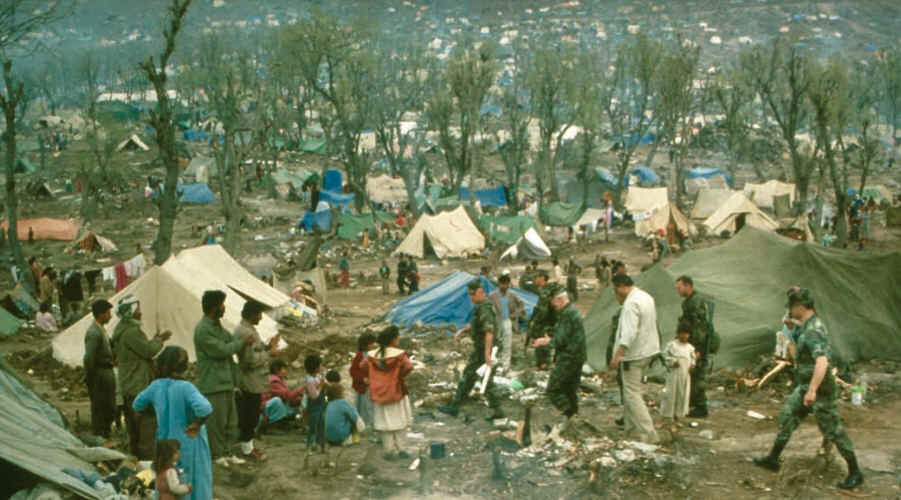Topic
| Security Council Crisis Committee | Topic | Member states | Links and documents | Contact |
|---|
Topic: Protection of humanitarian and UN personnel in conflict zones in Middle East
Introduction
The protection of humanitarian and UN personnel in conflict zones in the Middle East has been a long-standing issue for the international community. Formation of the United Nations led to the introduction of a diverse framework for conflict resolution and humanitarian aid, with the Geneva Convention of 1949 serving as a pivotal point for international humanitarian law; defining the protections that civilians, prisoners of war, and humanitarian workers are entitled to during armed conflict.
 Peacekeeping operations have also been a vital instrument employed by the international community to advance peace and security. While not particularly envisioned in the Charter of the United Nations, the UN pioneered peacekeeping in 1948 with the establishment of the United Nations Truce Supervision Organization in the Middle East. Since then, it has established a total of 71 operations, 11 of which were active as of November 2024. The United Nations Truce Supervision Organization, or UNTSO for short, was deployed in 1948 amidst the Arab-Israeli war and it remains active to this day. It’s mission has remained to supervise ceasefires and armistice agreements, prevent isolated incidents from escalating and to support other peacekeeping operations in the region to fulfil their mandates, however, many view UNTSO as a mission with a historical legacy, linked more to armistice deals from the middle of the 20th century than to the current dynamic of asymmetrical warfare in Gaza.
Peacekeeping operations have also been a vital instrument employed by the international community to advance peace and security. While not particularly envisioned in the Charter of the United Nations, the UN pioneered peacekeeping in 1948 with the establishment of the United Nations Truce Supervision Organization in the Middle East. Since then, it has established a total of 71 operations, 11 of which were active as of November 2024. The United Nations Truce Supervision Organization, or UNTSO for short, was deployed in 1948 amidst the Arab-Israeli war and it remains active to this day. It’s mission has remained to supervise ceasefires and armistice agreements, prevent isolated incidents from escalating and to support other peacekeeping operations in the region to fulfil their mandates, however, many view UNTSO as a mission with a historical legacy, linked more to armistice deals from the middle of the 20th century than to the current dynamic of asymmetrical warfare in Gaza.
UN Bodies in the Middle East; then and now
The previously mentioned 1948 Arab-Israeli war, that saw mass expulsion of native Palestinian population from their homes, also led to the formation of another UN agency, the United Nations Relief and Works Agency for Palestine Refugees in the Near East, or UNRWA for short. Tasked with maximising their human development through quality services in various areas such as education, health care, relief and social services, protection, camp infrastructure and enhancement and emergency aid, the UNRWA is funded through voluntary donations. The formation of UNRWA predates that of the UNHCR by a year and with UNHCRs mandate excluding refugees represented by other UN bodies, Palestinian refugees have been placed in a uniquely vulnerable position. As of right now, the future of the UNRWA is in peril, with the Israeli parliament, the Knesset, passing a decision in early November that contact between the UNRWA and Israeli officials will be cut off in the next 90 days, essentially rendering the UNRWA unable to fulfil its duties.
The long standing conflict between Israel and Palestine, that saw a large influx of Palestinian refugees in surrounding states led to further instability in the region. In 1978, as the result of the Lebanese civil war started three years prior, the United Nations Interim Force in Lebanon (UNIFIL) was established by Security Council resolutions 425 and 426. UNIFIL was tasked with assisting the Lebanese military and with aiding civilians and humanitarian workers that were recurrently managing complex battlefields and issues with kidnapings. Following the significant increase in violence along the Blue Line in late September 2024, UNIFIL peacekeepers face great challenges, but persist and continue to be stationed throughout south Lebanon alongside the local population. Peacekeepers have been targeted multiple times but they continue to monitor and reporting the situation on the ground. Additionally, they have increased different support programs for the local civilians and the internally-displaced persons.

The United Nations Disengagement Observer Force (UNDOF) established by UNSC resolution 350 is a mission tasked with maintaining the ceasefire between Israel and Syria and supervise the disengagement of Israeli and Syrian forces. UNDOF continues to be important today due to ongoing tensions between Israel and Syria, especially considering Syria's civil war and the existence of militant groups in the area. Although it is only tasked with observing and reporting, it has a crucial function in decreasing the likelihood of escalation and maintaining stability in the region.
The Iran-Iraq war, primarily driven by territorial disputes and political rivalries between Saddam Hussein’s Iraq and post-revolutionary Iran, was particularly difficult for humanitarian actors. The mass displacement of civilian population as well as mutual use of chemical agents coupled with strict limitations by warring states on aid organisations proved to be detrimental to the effectiveness of humanitarian efforts.
Conditions for humanitarian aid workers during the Gulf war could be described similarly to those of Iran-Iraq war. UN personnel providing aid were oftentimes at risk of retaliation by Iraqi forces but, despite these risks, limited infrastructure and harsh terrain Operation Provide Comfort was successfully established in 1991; its aim being setting up refugee camps and delivering emergency food, shelter, and medical supplies. The UN Oil-for-Food Program of 1996 allowed Iraq, which was amid a humanitarian crisis caused by strict sanctions imposed by the US and its allies, to sell its oil in exchange for essential supplies. This programme, although helpful, was wholly insufficient in remedying the humanitarian crisis caused by the sanctions, with aid workers constantly facing issues of insufficient resources, regional instability and intense scrutiny by the Iraq regime limiting their abilities to distribute aid. This war proved to be the most dangerous conflict for humanitarian workers in the Middle East only surpassed by the ongoing Israel-Hamas conflict.
As a result of these conflicts, international security measures aimed at protecting humanitarian workers were expanded. The Rome Statute of the International Criminal Court, classified attacks on humanitarian personnel as war crimes. The security initiatives were also implemented through the strengthening of the UN Security Management System (UNSMS), introducing new protocols, like the establishment of “white zones” for humanitarian operations, aimed at alleviating risks for personnel operating in active conflict zones.
Despite this, the most recent and the dramatic escalation of conflict in the Middle East that was marked by the Hamas attack on Israel on October 7th 2023, saw international law disregarded, with Israel oftentimes standing in opposition to UN ideals and demands. The crisis in Gaza has obscured all other confrontations in the region, taking into account widespread destruction, displacement, and loss of life it has produced. This escalation has not only deepened the humanitarian crisis but has also exposed humanitarian and UN personnel to unprecedented risks. By October 2024, almost 48,000 people in Gaza have been killed during the resulting Israeli offensive majority of them being women and children, including 230 UNRWA staff members as well as other humanitarian workers and journalists. Ensuring the safety of these employees is not only a moral duty but an essential necessity for successful humanitarian missions. In order to tackle this issue, the international community needs to focus on enforcing international laws, ensuring access for humanitarian aid, and establishing a safe environment for aid delivery.
Conclusions
 Throughout the 20th century humanitarian workers and UN peacekeeping personnel have been exposed to great danger throughout numerous conflicts that have plagued the Middle East. The safety of aid workers has always been a difficult reality of their work and although numerous international documents have been signed with clear aims of protecting them, the recent Israel-Hamas conflict has shown that aid and humanitarian workers remain vulnerable more than ever before. In spite of the escalating humanitarian crisis, the lack of progress in politics, especially within the UN Security Council, is evident and has hindered the humanitarian work of UN and non-UN humanitarian bodies. If immediate international measures are not taken to safeguard aid workers and civilians the situation in Gaza and throughout the Middle East will continue to deteriorate.
Throughout the 20th century humanitarian workers and UN peacekeeping personnel have been exposed to great danger throughout numerous conflicts that have plagued the Middle East. The safety of aid workers has always been a difficult reality of their work and although numerous international documents have been signed with clear aims of protecting them, the recent Israel-Hamas conflict has shown that aid and humanitarian workers remain vulnerable more than ever before. In spite of the escalating humanitarian crisis, the lack of progress in politics, especially within the UN Security Council, is evident and has hindered the humanitarian work of UN and non-UN humanitarian bodies. If immediate international measures are not taken to safeguard aid workers and civilians the situation in Gaza and throughout the Middle East will continue to deteriorate.
Questions
